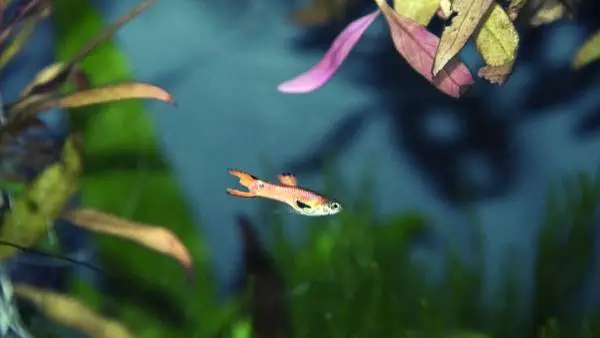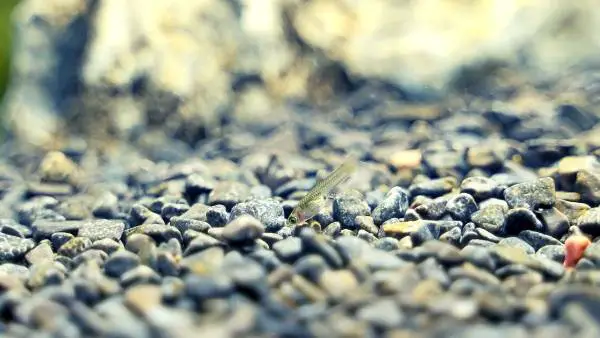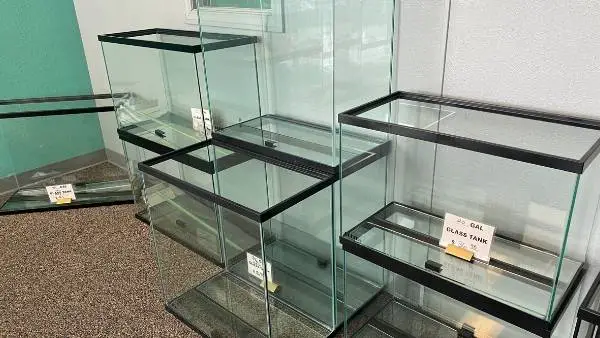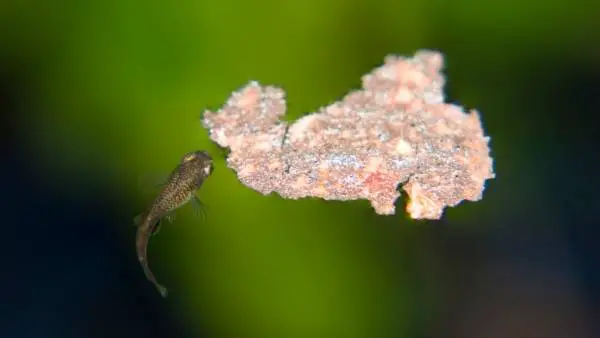Yes, guppies usually do eat their young. The act is called filial cannibalism and is considered to be incredibly out of character for such a peaceful fish. If you want to successfully breed yours, you must learn how to prevent it from happening.
Guppies are an incredibly popular fish due to their calm nature and beautiful appearance, however, there is an unfortunate and rather horrifying reality when it comes to guppy reproduction. The somewhat confusing aspect of this is that they are such calm and peaceful fish, swimming freely in schools and not disturbing their tank mates.

Adult guppies usually do not eat all of their fry, but you can guarantee that a few will go missing after giving birth to them. The strange thing is that guppies seem so unassuming, especially when compared to more menacing and aggressive fish, but the reality is that they are cold-blooded cannibals! As a hobbyist, it is your job to protect the baby guppies from their parents, ensuring that they live a long and healthy life, but how do you go about protecting them?
Why Do Guppies Eat Their Young?
Unfortunately, the reason behind this merciless behavior is relatively unknown, there are some rational explanations, but they are still just logical theories. The likelihood is that it is an accumulation of several factors, which we will dive into. But still, scientists for years have been trying to find out exactly why filial cannibalism exists within the marine world, and the answers are still blurred, with some realistic explanations.
They Look Similar to Fish Food
The most commonly theorized explanation for guppy cannibalism is that guppy babies resemble regular fish food for adult guppies. Especially live food, this is because guppies do not lay eggs, they give birth to fry instead, which means that the baby guppies are more developed and able to swim straight away. This does lead to the adults mistaking their fry for fish food.
Weak Guppy Fry
Over the course of several hours, guppies can produce anywhere between 10 and 120 baby guppies! Additionally, guppies are quick reproducers and can give birth almost every single month. In most animal litters, some babies are weaker and some stronger, and in some cases, carrying obvious disabilities and illnesses from birth, which is certainly the case with fish.
So, in some circumstances, you will find that your adult guppy is removing the weak, ill babies, and keeping the strong, healthy ones. Typically, you will find your adult guppy eating the babies that cannot defend themselves, are too weak to swim and eat properly, or lack basic survival instincts.
Adult Guppies and Psychological Stress
Just like humans, guppies can struggle with psychological issues, stress, and even depression. It has been said that adult guppies can become in denial regarding the birth of their offspring, and considering how many fry they can give birth to at once, the situation can become overwhelming for them, therefore resulting in eaten guppies. By eating their babies, adult guppies may experience a sense of relief as they have removed the burden.
Retaining Fat Storage
After birth, the female guppies will immediately begin hunting for food, this is to restore their bodies with the fats and energy lost during the birthing process. Unfortunately for their young, the baby guppies are a brilliant source of healthy fats and are also incredibly accessible for their mother to eat them!
Good Source of Food
Although not justifiable, you can somewhat understand or at least see why the females eat their fry, but it is hard to see why the male guppies do the same. Probably the most logical reason for this would be that the fry provides all the nutrients required in terms of guppy food, and, when alternate food is not available and your male guppies are hungry, they will begin to snack on their young. This is why correctly feeding your fish tank is abundantly important!

All of these explanations may seem like rational theories, but there are some anomalies, where a guppy parent will eat their fry despite being well-fed, healthy, happy, and peaceful. It is a given that, if you want your guppy fry to survive, you must not leave them with their disturbing parents.
How Do You Stop Your Guppies From Eating Their Babies?
The best way to prevent your guppies from eating their innocent fry is by keeping your parent guppy in a separate tank to the fry upon birth and then waiting for your fry to get larger and stronger, making them a far less appealing snack for their parents. There are some additional methods you should consider adopting if you do not want any harm to come to your baby guppies.
Keeping Your Pregnant Guppy in a Breeding Box
Guppies are some of the most active breeders in the marine world, which is perhaps what makes this whole scenario so disturbing. Nonetheless, they will breed and produce fry within 3-4 weeks.
Look out for these signs to tell if you have a pregnant guppy on your hands:
- It looks discolored or faded, or has a bloated appearance.
- There is dark discoloration near the rear of the guppy.
- It prefers the heat, and will try and find the more heated areas of your aquarium.
- Finally, your pregnant guppies also prefer darker lighting and will gravitate to dark area of the aquarium.

If you have a good gauge on your guppy's pregnancy timeline, you should remove your pregnant guppy 2 or 3 days before the expected birth and add them to a mesh breeding box. If not, an old fish tank will do the job perfectly when it comes to seperating the guppies from their fry. This way your guppies will be born away from the hungry adults, alleviating the risk of them being eaten.
Keeping a guppy alone and isolated can cause a lot of stress, which can negatively affect the pregnancy and even kill the offspring before they have even been born. So, if you start to notice your pregnant guppy behaving stressed out, add it back to your aquarium.
Separate the Guppy from the Newborns
A successful strategy when trying to ensure none of your guppy fry become a tasty snack is to remove them from their tank upon birth and add them to a smaller, isolated aquarium. It is important that you set up this temporary fish tank properly, by cycling the water and ensuring it meets the proper requirements for the fry to safely reside in it.
Once your guppy has given birth to its fry, you need to ensure that you feed them a well-balanced and high-quality diet. The fry will require special foods to make sure that their nutritional requirements have been met. These foods typically include small live foods, such as baby brine shrimp, micro worms, daphnia, or even vinegar eels can be used, but if you do not have access to these unique food types, you can use frozen or dried food as long as it is small enough to feed the fry.
To guarantee your fry have the best chance of not dying young or developing deformities, you must:
- Maintain clean tank water.
- Feed them regularly.
- Create a healthy dietary plan.
- Provide them with good lighting.
- Ensure they get enough rest and sleep.

Now that you have successfully separated the innocent fry from their cannibalistic parents, you must wait for them to grow to a good size, preferably one that cannot fit inside the mouths of adult guppies.
When they are a good size and strong swimmers they should be ready to be introduced to the main guppy aquarium. Make sure you add some good hiding spots for the young guppies in case they are still victims of being chased by the larger adults.
Final Thoughts
Guppy parents are overall pretty savage, which is strange and somewhat uncharacteristic of them, but that shouldn't fool you, nor should it put you off purchasing these brilliant fish for your home aquarium! As soon as the babies are born, it is your responsibility to ensure the safety of the fry. By following these tips and instructions you will hopefully be preventing some avoidable guppy deaths. Good luck!

